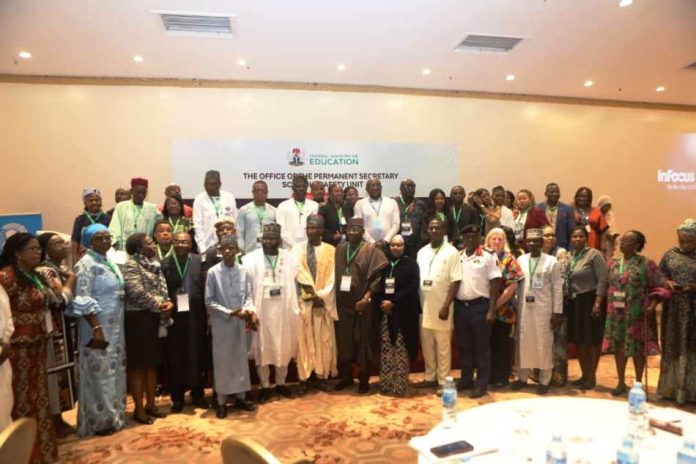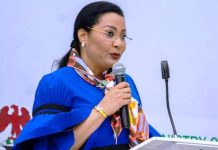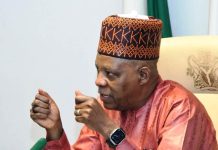The Federal Ministry of Education has reaffirmed Nigeria’s unwavering commitment to making schools safe havens for learning, growth, and development. This assurance came during the commemoration of the International Day to Protect Education from Attack, where government and partners renewed calls for united action under the theme “Challenging Narratives and Reshaping Actions.”
Delivering the keynote on behalf of the Permanent Secretary, Federal Ministry of Education, Mr. Abel O. Enitan, the Director of Human Resource Management, Mr. Yusuf Saheed, stressed the government’s resolve to move beyond rhetoric to coordinated interventions through the Safe Schools Programme. He declared that insecurity in schools must never be accepted as inevitable, affirming that every Nigerian child deserves to learn in peace while teachers must work free from fear. He further noted that under President Bola Ahmed Tinubu’s Renewed Hope Agenda, education remains central to national development, with safety fully integrated into infrastructure, emergency response, psychosocial support, and community engagement.
In his opening remarks, the Director of Schools Safety, Hussaini Aliyu Abdullahi, welcomed participants and underscored that safeguarding schools is a shared responsibility and an urgent national priority. He emphasized the Ministry’s shift from reactive measures to proactive steps in advancing the Safe Schools Programme, in line with the Renewed Hope Agenda. Activities marking the commemoration included cultural performances by students, safety sensitization in FCT schools, and visits to institutions such as the National Safe Schools Response Coordination Centre (NSSRCC), the Nigeria Security and Civil Defence Corps (NSCDC), and the Schools Protection Squad of the Nigeria Police Force.
Delivering a goodwill message on behalf of the FCDO-PLANE National Team Lead, Dr. Gboyega Illusanya, the National Safeguarding Advisor, Ms. Amy Oyekunle, reaffirmed PLANE’s commitment to supporting Nigeria in building an inclusive and effective education system. She emphasized that education is a right, not a privilege, and must remain accessible even during crises. Highlighting PLANE’s interventions since 2021 in Kaduna, Kano, and Jigawa to support the National Policy on Safety, Security, and Violence-Free Schools, she commended the resilience of learners and educators while urging collective action to make every school a sanctuary of peace and opportunity.
On her part, UNICEF Chief of Education, Ms. Vanessa Lee, reiterated UNICEF’s commitment to supporting Nigeria in keeping schools safe and resilient. She underscored the importance of equipping teachers with the right training and support, while recognizing the critical roles of SBMCs, ministries, security agencies, and partners in safeguarding learning spaces. She pledged UNICEF’s continued collaboration with the Federal Ministry of Education, UBEC, and state governments to advocate for resources and policies that ensure every child can learn in safety and reach their full potential.
Providing an overview of Nigeria’s Safe Schools Programme, Mr. Achede Joseph O., Deputy Director at the Federal Ministry of Education, outlined key achievements since the country endorsed the Safe Schools Declaration in 2015. These include the 2021 launch of the National Policy on Safety, Security, and Violence-Free Schools, establishment of the NSSRCC under the NSCDC, creation of state steering committees, nationwide training of education officials, and participation in the global SSD network. While acknowledging persistent challenges such as limited funding, weak rural infrastructure, and insecurity, he stressed the need for sustained political will, dedicated budgets, and stronger grassroots-focused implementation.
Adding further, UNICEF Education Specialist, Mr. Believe O. Eke, presented on “Reshaping Actions for Safe Schools.” He stressed the urgent need for coordinated interventions that prioritize child protection, inclusive learning, and community engagement. He reaffirmed UNICEF’s commitment to supporting government and partners in strengthening policies, building capacity, and adopting innovative strategies to ensure schools remain safe and resilient for all children.
The Federal Ministry of Education emphasized that protecting education is both a shared responsibility and a national imperative. By securing schools today, Nigeria is safeguarding the future of its children while laying a strong foundation for peace, resilience, and sustainable development. The Ministry assured that it will continue working with all stakeholders to ensure every child in Nigeria learns in safety, dignity, and confidence.
Signed
Folasade Boriowo
Director Press & Public Relations






